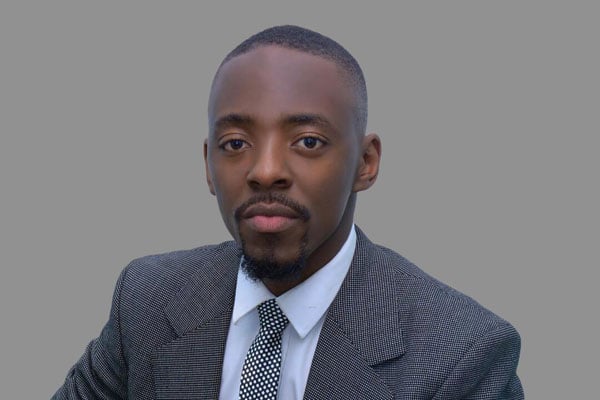Prime
Anti-gay law: Uganda daring the West?

Bubulo East MP, John Musila poses ahead the plenary sitting at Parliament where lawmakers passed the Anti-Homosexuality Bill, 2023, as it returned for the second and third reading on March 21, 2023. PHOTO/ DAVID LUBOWA
What you need to know:
- Parliamentarians opposed to same-sex activities have since February 28, when the Bill was first read on the floor, vocalized attempts to present Uganda as a highly conservative religious nation with an immaculate pedigree.
- In 2014, MPs passed a Bill that called for life in prison for people caught having gay sex.
- A court later struck down the law on a technicality, but it had already sparked international condemnation, with some Western nations freezing or redirecting millions of dollars of government aid in response.
The enactment of a legislation which introduces tougher penalties for LGBTQ people is a major victory for Ugandans, Parliament said on March 21 upon passing the Anti-homosexuality Bill, 2023 that has sparked mixed reaction from stakeholders.
The Bill, unanimously passed rapidly with a 231-legislator-surplus to the required 176 members quorum for its adoption, if signed into law, will obligate Ugandan courts to hand an over 10-year jail term or extreme punishments for offenders -essentially- identifying or promoting LGBT activities.
The Anita Among-led House has since vowed complete disregard to concerns of the international community that roared against the controversial law.
"This House will not shy to restrict any right to the extent of the House that recognizes, protects and safeguards the sovereignty, morals and culture of this country,” Speaker Among said after the House’s evening vote.
In passing the Bill, Among and several other jubilant MPs held that “they’d overcome growing pressure and condemnation from internal and external gay rightists.”
"We recognize that the constitution contains [of Ugandan] non-derogable rights and in this process, the House has striven to recognize those rights...but the norms and aspirations of the people of Uganda will always remain supreme," Ms Among noted.
In what precedents a diplomatic row, Amnesty International March 22 responded- describing the Bill as an "ambiguous and vaguely worded law.”
Parliamentarians opposed to same-sex activities have since February 28, when the Bill was first read on the floor, vocalized attempts to present Uganda as a highly conservative religious nation with an immaculate pedigree.
"This legislation would institutionalize discrimination, hatred, and prejudice against the LGBTQ community," Amnesty’s east and southern Africa director Tigere Chagutah told global news agency, AFP.
In Uganda, it rather draws no surprise that the 2023 amendments targeting unusual sexual identity have huge backing from purists and moralists.
“This straight nation…government of God has rejected homosexuality,” renowned anti-gay activist Pastor Martin Ssempa celebrated as he called for “only a man-woman marriage ordained by God.”
‘A lot of LGBT power’
But Ugandan youth Godwin Badugu Abigaba, who acknowledges morality, says high unemployment rates and poverty will be an acid test of the legislation that also seeks to crackdown on consensual same-sex activities and its promoters.
Official government figures show that over 8.13 million Ugandans are poor with another 16.99 million poor-non-poor in the country exceeding 45 million people- which the LGBTQ advocates have reportedly preyed on for –mostly- youth recruitment.
“These LGBT things have decades-long been here but Uganda depends on donations,” Mr Badugu who resides in Uganda’s capital, Kampala noted on Wednesday.
“After passing the Anti-Homosexuality Bill, some funders have withdrawn their cancer research support. These people possess significant financial resources and wield a lot of power,” Mukasa Mbidde, a former member of the Arusha-based East African Legislative Assembly (EALA) observed while appearing on a Tuesday weekly political talk-show on a local television, NBS.
Like Mbidde, Badugu fears that “the clout and financial muscle of the LGBTQ community could influence future processes regarding Tuesday’s amendments.”
Meantime, President Museveni has more than once viewed industrialization and commercialization of oil and gas as one of Uganda’s main strategies out of presumed Western bullying.
‘Reclaiming the right’
President Museveni who has a long-history of going against the West on critical issues on March 16 branded homosexuals as “deviations” in an inconclusive address to the legislative assembly.
“The Western countries should stop wasting the time of humanity by trying to impose their practices on other people,” he added before echoing his 2014 assertion that approving the law would follow scientific research.
But during plenary on Tuesday, the Leader of Opposition in Parliament (LOP) Mathias Mpuuga found fault in Mr Museveni’s current stand.
“We took note of his speech in tongues sounding without conclusion,” Mr Mpuuga who doubles as Nyendo - Mukungwe representative in the House said on Tuesday as he urged the Executive to respect Parliament's latest anti-gay adoption.
Mr Museveni, 78, now has a sole blockbuster decision to either veto or sign the Bill into law with a court challenge to amendments on an existing but lighter anti-gay legislation likely, again.
“No right has ever been harmed on the wheels of inevitability. They claimed and we’ll (re)claim this too. History will be harsh to those who are hateful, vengeful and homophobic/transphobic,” US-based Ugandan rights attorney Nicholas Opiyo tweeted on March 21.
In 2014, MPs passed a Bill that called for life in prison for people caught having gay sex.
A court later struck down the law on a technicality, but it had already sparked international condemnation, with some Western nations freezing or redirecting millions of dollars of government aid in response.





